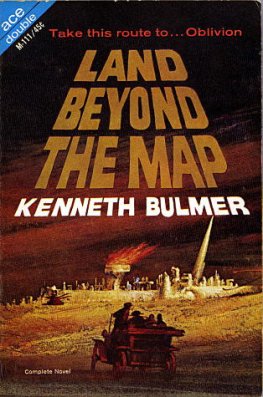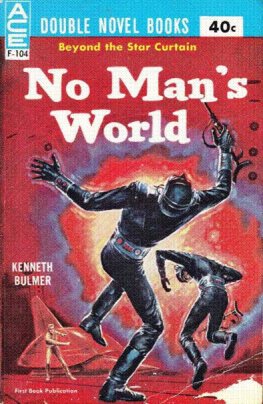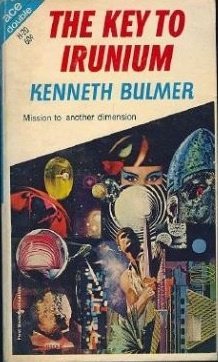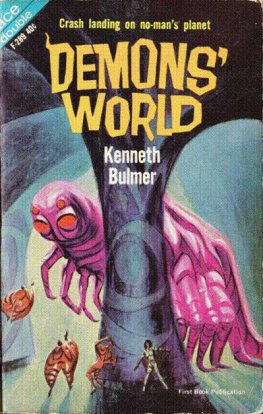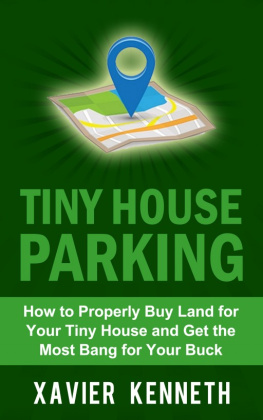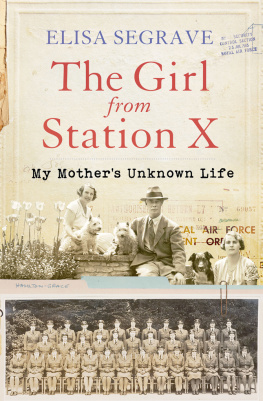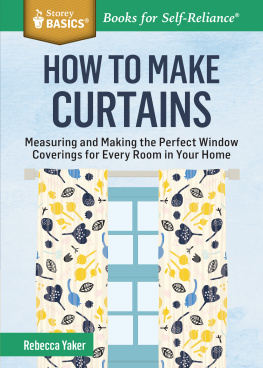Kenneth Bulmer
LAND BEYOND THE MAP
Roland crane heard the crash of breaking glass in his study from the hall where he had gone to tap the barometer and curse the windy, overcast, beastly weather. The sound echoed hard on a blast of wind that shook the isolated old house. The carpet rippled the length of the hall like an anaconda. The lamp swung from its chain, chasing shadows like bats across the polished paneling of the walls.
He ran angrily back, almost colliding with the incomplete suit of Florentine armor, in time to see the second maid, young Annie, burst into tears.
Strewn at her feet across the Persian carpet, shards of glass glittered in the table-lamps illumination like the aftermath of a battle. Crane looked up.
All along the windowless north wall his map frames hung, some faded, some brightly colored, tattered, dimmed with age, charred, stained, inscribed with loving and painstaking care and the lavish curlicues of writing from the hands of men long dead. That wall dominated the room. Across from it the curtained windows and ceiling-high bookshelves counter-pointed in modern somber book-learning the high brilliance of those maps. They spoke of daring and the great venture across unknown oceans, of beckoning mists of undiscovered lands and the siren call of the sea. The salty tang of romance breathed from them into the close confinement of the somber study. From pigment and parchment beckoned the lure of the unknown.
In the center of the Fifteen Eighty Italian of the Florida Gulf and the westward islands a starshaped outline revealed the brighter color of gold leaf beyond where no glass lay to dull the luster.
Im sorry, sir. I just dont know how it happened.
Annies nose was red and her cheeks shook and her whole scrawny frame trembled. She peeked at him over her hands pressed tightly to her wet face. Her bright bird-like brown eyes were moist and overflowing.
Cranes anger dissipated. Annie was the daughter of old Annie, who had served him as well as she had his father, and that had been back before the first World War, before Roland Crane was thought of, when Isambard Crane was building up the engineering combine that now kept his son in idle luxury. That idleness was relative, though; because of his dislike of business drearinesses Cranes energies found other outlets. Men of affairs tended to misjudge him on the basis of bis inherited affluence.
The map was unharmed. He took four quick strides to the frame and checked. An odd bluish tinge stained the glass. It had shattered into the shape almost of a perfect seven-pointed star. He turned on Annie.
Thats all right, Annie. No real damage done. And stop crying, for goodness sake!
Im sorry, sir
What were you doing here at all this time of night?
Annie gestured to the coffee table. A tea pot covered with a hand-knitted cosy, a cup and saucer, milk and sugar and a heaping plate of buns, with a dish of butter and a knife and toasting fork reminded Crane he had rung for tea.
Why didnt Molly bring it? Molly was the first maid.
Its her night off, sir
Oh. Crane laughed. Well, its not a very pleasant one. The wind must be gusting past seventy. Probably the blast I heard in the hall twisted the fabric of the house in some way, maybe vibration, and the glass must have been weak never mind now. Just clear the glass away. And be careful dont spear yourself.
Yes, sir.
The telephone rang.
Oh, drat it, said Crane ungraciously and crossed to the wall-table where the phone crouched like a sentient spider, connected to the web of the world.
He did not recognize the voice. The storm must have interfered with the telephone line as well as smashing his map glass; he realized it was a woman, but the squawks and ululations and clicks rendered any further guess impossible.
Mr. Roland Crane?
Speaking.
The Mr. Roland Crane who is interested in maps?
Cranes mental defenses alerted. Before he could make his usual cautious reply, the womans voice went on:
Interested in buying maps? I have something you might care to see.
Oh?
Perhaps I could come out to Bushmills?
We-ell
I have a car. Im in the Royal Garage in town. I could be with you in half an hour.
Crane thought of the drive out from Market Nelson, with the road winding steadily upwards onto the inhospitable moorlands, with the scraggy trees lying flat in the wind and the road glistening with unshed water, the ditches and gutters miniature raging torrents. No weather for a woman. He thought of the Coup des Dames, and smiled wryly to himself; his notions of woman-kind stemmed from the pages of old books, where knights in shining armor defended shrinking damsels from fire-breathing dragons. Today, the girls twisted the necks of the fire-breathing dragons pretty efficiently themselves.
All right, Miss?
Harbottle.
He shuddered and went on: Very well, Miss Harbottle. If you care to drive out in this weather tonight then what you have for sale must be very interesting. Come out, by all means.
The phone went dead at once. That might be a fallen telegraph pole just as easily as the replacement of the receiver.
He watched as Annie finished clearing away the glass. Odd that the glass had broken at all, really, just like that; but that had been a treasure bought entire frame, map, glass and all. The glass was old and weak. He made a mental note to check all the other framed charts and maps. Those housed in the ponderous sliding drawers of the cabinets were preserved better, perhaps; but he would have missed that oriflamme of color along the wall.
Maps perhaps formed too great a part of his life. He had tried various of the other ways rich men spent their days and had found them all uniformly dull, pompous or cruel. His interest in maps stemmed from that early odd experience; he had told the story a few times but, meeting raised eyebrows and smiling incredulity, hadnt bothered lately. He wondered now, not for the first time, if he followed a will o the wisp. The main fact that the search went on still was good enough.
The buns toasted well before the banked fire roaring in the hearth. Wasteful, perhaps; shedding a benison, yes. And that was what counted with Roland Crane.
He poured milk and added tea and sugar and lay back in his winged armchair with the sliding seat and back fixed in the most comfortable position years of experience had taught him. It was good to be alive. It was good to be rich with financial cares handled by a remote glass-walled office in the City of London. It was good to live a full life in these bleak moorlands of the west country, and to go off on a dig during the season, working with men and women who shared his archaeological dedication. The idle wasting away of life in frittering pursuits that was a disease with the rich would have killed him inside three months.
Next season would be if he was lucky Turkey. A great deal to be dug up there, to be found, to be added to the store of human knowledge. Many of mankinds origins were to be discovered there and Cranes wealth would once more be willingly thrown into the work of unfolding the veil of the past. Yes, it was good to have a purpose in life.
He drank more tea and ate a toasted bun, liberally smeared with good rich farm butter, and lay back in the great winged armchair, well content.
He wondered, not without a twinge of muted excitement, what this strange woman would be bringing him tonight out of the storm.
Miss Harbottle had wasted no time. Shed probably driven up that winding road with the wipers tick-tocking across the windshield, the tires hissing in the rain, the main beams scything ruthlessly ahead, a cigarette held casually between her lips, clocking a steady sixty.
She looked that sort of girl.
Annie ushered her in, said that she would bring fresh tea, and closed the door silently. Miss Harbottle advanced with outstretched hand. Crane took it, looking at her, suddenly and disastrously uncomfortable.

